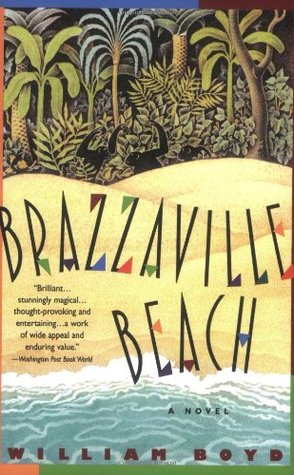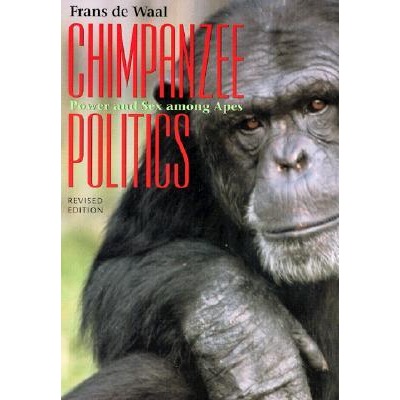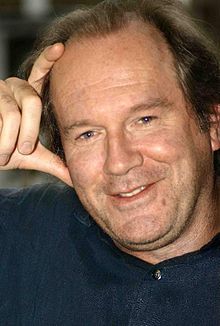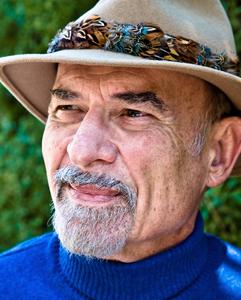A very unusual locale and set-up for a krimi. Bravo!
The action centers on a research station in the forests along the Congo River where a multinational group of scientists observe chimpanzees sometime in the 1960s. The narrator is a recently-minted PhD who muses on what led her to this place when she is not watching the monkeys. (I do so detest backstories because they are distracting.)

The book offers intriguing soupçons about the primatological research into the social customs, practices, and habits of a clan of chimpanzees, along with a study of their diet, and movements, including bowels.
In the distance, on the far side of a mountain range there is a four-way civil (tribal) war going on, and that spectre cannot be ignored, since it might influence the funding agencies to withdraw support. Of course, there are twists and turns among the scientist, though our protagonist is so junior, she seldom sees the professional rivalries firsthand. That is, she is out in the field observing, while back in the base camp the more senior members of the party wrangle over precedence. What she sees there in the field is remarkable and in time upsets the established order.
Spoiler alert.
The book recounts three intersecting conflicts: there is war among the chimpanzees, there is conflict among the scientists over the data and its interpretation, and the tribal war mentioned above. In time, the three come together. It is all very ambitious. The first two provided more than enough material, and this reader found the intrusion of the third inevitable and unnecessary.
The most interesting aspect is the primatology. The manners and morēs of the chimpanzees in the wild, the relations among them, including the conflict that is a war in all but name. But also of interest is the relationships of the primatology observers with the chimpanzees. The scientists personify the chimpanzees with nicknames, though technically they have specimen numbers, these latter are only used in the final write-ups. Nor is there any doubt that the chimpanzees recognise and distinguish the observers from themselves and that they know one observer from another, and there is one harrowing moment when that recognition is crucial.
Years ago as a prospective text for the Power course, I read Frans de Waal’s ‘Chimpanzee Politics’ (1985), a study of chimpanzees in the Arnham Zoo in the Netherlands, a book that is written with panache and insight, along with a few gratuitous reference to Machiavelli that I logged in my collection of inanities about him. While de Waal’s book has much technical detail about quasi-experimental tests done in captivity, it is easy enough for a general reader, and leaves one in no doubt of the intelligence and capacity to learn of chimpanzees.

Our heroine survives it all but some others (including some of the chimpanzees) do not. She finds that among the tribal warriors are some decent folks, that the mercenaries attracted to the conflict are a varied lot, that some of the scientists on the project are unscrupulous and mercenary themselves (really?), that the chimpanzees are capable of moral acts, that her husband’s suicide which more or less drove her to Africa remains a mystery, and that…. the most important lesson, life goes on even in Brazzaville Beach.
 William Boyd
William Boyd
The writing is assured; the touch is light; the themes are serious as they slowly emerge. The context is richly detailed. Altogether a good book. William Boyd has others and I might read another one day but I will not make it a priority, because I thought this one had too many themes and circumstances competing for my thin attention. Once again, I seem to be in a minority because the back cover is plastered with testimonials from the highest sources like the ’New York Times.’
The title caught my eye because Brazzaville in the Republic of the Congo was where Charles De Gaulle made his second radio broadcast, this one to the French colonies. There was a large transmitter in Brazzaville, built in the 1930s to reach the African colonies and even some air and naval traffic. De Gaulle traveled there in 1940 to win supporters, and met with some success.
Month: May 2016
‘The Spinoza Problem: a Novel’ ( 2012) by Irvin Yalom
The setting in 17th Century Amsterdam shows assiduous research and the differentiation of characters is good, as far as I can tell. On that qualification there will be more later.

Baruch Spinoza (1632-1677) repays effort. The first is with his name. He was born Benedito de Espinosa of Portuguese parents who had moved overnight to Amsterdam to avoid the convert-or-die (later) Iberian Inquisition. (Why does Ted Cruz come to mind?) The parenthetical reference ‘later’ applies because even Jews who willingly converted to Catholicism were subjected to subsequent persecution. In Holland he was sometimes styled Benedict. In all those permutations his first name means ‘Blessed.’

That qualification ‘as far I can tell’ means I stopped reading the book very early. I violate my rule of the positive in this case because I wanted to express my admiration for Spinoza the thinker. In addition his reputation as a man has come down the ages as a simple, unpretentious person, whose life was a model of rectitude, in contrast to the wastrel Jean-Jacques Rousseau, the gloom-and-doom merchant Thomas Hobbes, the obnoxious self-promoter John Locke, or the nutter John Stuart Mill.
Spinoza’s two tracts, the ‘Politics’ and the ‘Ethics’ are fine books, though arid. He much admired the method of geometric reasoning. Yet somehow he is not on the starting team in the Tour of Political Theory, so I only ever managed to slip the ‘Politics’ onto the syllabus once many years ago. Ditto his fellow Dutchman Hugo de Grotius.
‘The Spinoza Problem: a Novel’ is described as a thriller, and I should have stopped there. The lure of Spinoza was, however, too much; I bought it and started to read. The book has two characteristics that I dislike so much that I gave up on Spinoza.
First, everything is written in the present tense, including flashbacks. Ergo everything is happening at once.
Second, this simultaneous action occurs across the centuries because every other chapter alternates from Spinoza’s time in the 17th Century and the 20th Century. I like my krimis linear and literal.
The early scene with the schoolboy Alfred Rosenberg (look him up, if he is unknown) getting a lesson in life at his Estonia high school is certainly interesting, and sheds some light on anti-Semitism. I wish I had been able to persist,,,, (However, there are so many other, good books that do not set my teeth on edge.)
The use of the present tense is so common I suspect it is advised by agents and perhaps required by publishers, at least, of certain genres. That is, the thriller. Why do I react to it?
When everything is happening at once, it is left to the reader to sort out sequence, to distinguish past from present, and to supply the emphasis and the pace of events, and even to supply the viewpoint. It is like looking at two-dimensional flat world without topography and without time. See, it is lazy writing making the reader do the work that the writer should have done. Stephen King would have a zinger on this. Verb tenses are tools, and should be put to work. That is why they exist.
Not everyone is bothered by ahistorical simultaneity, it seems, because the book is published by a major New York publisher and has a good rating on Good Reads, for whatever that is worth. (I never cease to marvel at the illiterate accolades heaped on some dreadful specimens. Why did Donald Trump come to mind?)
 Irvin Yalom
Irvin Yalom
Confession: I was also irked by a lengthy introduction from the author about his many and deep interests. If that has to be present, put it at the back. In any event, I skipped it, something I was taught to do in college literature classes so as to make up my own mind. That I did.
